Rachel Manija Brown's Blog, page 10
October 7, 2024
Yuletide sign ups are open early!
View Poll: #32001
Here's the tag set.
I am especially taken by...
Nostalgia fandoms: Henry Reed, the Girl with the Silver Eyes, All of a Kind Family, The Borrowers, Damar - Robin McKinley, Dragonlance, The Face in the Frost
Current and forever favorites: New Mutants, The Fall of the House of Usher (TV), Earthsea, Watership Down, Chronicles of Prydain, The Dark Tower, Dragonriders of Pern, Finisterre - C. J. Cherryh.
I was just pleased to see this: Willy's Chocolate Experience - Glasgow Attraction, The Architect of Sleep - Steven Boyett (the one with intelligent raccoons), At Amberleaf Fair - Phyllis Ann Karr, Ask a Mortician - Caitlin Doughty, Late Bronze Age Collapse RPF.
What intrigues you from the tag set?

 comments
comments
Here's the tag set.
I am especially taken by...
Nostalgia fandoms: Henry Reed, the Girl with the Silver Eyes, All of a Kind Family, The Borrowers, Damar - Robin McKinley, Dragonlance, The Face in the Frost
Current and forever favorites: New Mutants, The Fall of the House of Usher (TV), Earthsea, Watership Down, Chronicles of Prydain, The Dark Tower, Dragonriders of Pern, Finisterre - C. J. Cherryh.
I was just pleased to see this: Willy's Chocolate Experience - Glasgow Attraction, The Architect of Sleep - Steven Boyett (the one with intelligent raccoons), At Amberleaf Fair - Phyllis Ann Karr, Ask a Mortician - Caitlin Doughty, Late Bronze Age Collapse RPF.
What intrigues you from the tag set?

 comments
comments
Published on October 07, 2024 10:08
October 3, 2024
The Chamber, by Will Dean
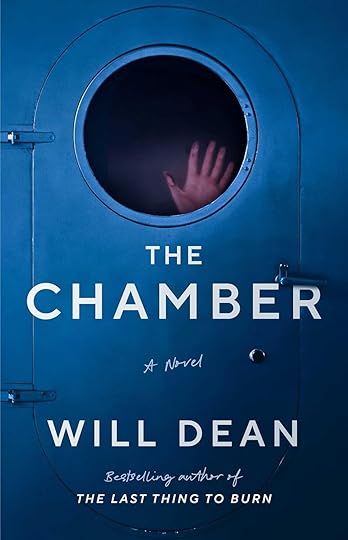
I finished reading this and immediately rushed to write this review to warn people off this book. It's one of those books where I was VERY ANGRY upon finishing it, and thinking about it more only made me angrier.
I bought it on the strength of this blurb:
And Then There Were None meets The Last Breath in this tense and suspenseful locked-room thriller that takes place inside a hyperbaric chamber.
Six experienced saturation divers are locked inside a hyperbaric chamber. Calm and professional, they know that rapid decompression would be fatal and so they work in shifts, breathing helium, and surviving in hot, close quarters.
Then one of them is found dead in his bunk...
Ellen Brooke, the narrator, is one of the very, very few female saturation divers. Sat divers do repairs and maintenance on underwater structures by being living in an extremely high pressure chamber in between doing their dives, so they only need to do decompression once, when they finish the job. The chamber is above-water. If it's breached before it's decompressed, they will basically explode. This has happened once in real life, in an incident on the Byford Dolphin. It's gruesome.
The rest is as the blurb says: the divers start mysteriously dying within the chamber. The team outside immediately begins decompression, but this takes days. They can't open the chamber, or they'll all turn into raspberry jam (as is stated, in those words, something like 20 times.) So they're all trapped inside, maybe with a killer amonst them, trying to figure out what's happening and why.
I figured that even if the prose and characterization weren't the greatest, the book would be carried by the strength of its premise. The challenge from a writing standpoint is incredible. They can't get out. It's a tiny space. They can see each other at almost all times. They're being observed from the outside 24-7. And yet somehow they're getting killed off one by one. How can the writer pull off this bravura feat?
I will tell you how: by constructing the book like it's a locked-room mystery, and then not solving the mystery. Thought it would be incredibly hard to pull off a mystery under these circumstances? Ha ha! It's easy when you don't have to bother with solving the mystery.
Cut for angry, spoilery details. ( Read more... )
I hate this book. I hate it so much. It was pretty engaging, if somewhat repetitive, until the 98% mark and then it earned my FOREVER HATE.
ETA: Oh wait, I forgot to mention that in retrospect, given the ending, it's also really sexist! ( Read more... )
 comments
comments
Published on October 03, 2024 08:33
September 26, 2024
A Heart That Works, by Rob Delaney
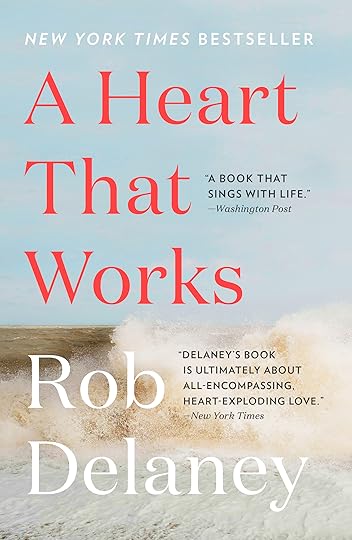
A short, heartfelt, sometimes unexpectedly funny, wrenching memoir about Delaney's son Henry, who died of cancer when he was two years old, and about his family in the time when Henry was there. It's about love and grief and joy; it's an incredible depiction of the early, intense kind of grief that feels like it's going to rip you apart; it's very beautiful. This is the kind of book where either you want to read it or you really, really don't. If you do, I recommend the audio read by Delaney.
There is no physical paradise where he’s waiting for me, and for that I’m glad. I have to imagine that would get boring after a couple of centuries, for him, for me. For you. Rather, I suspect I am a glass of water, and when I die, the contents of my glass will be poured into the same vast ocean that Henry’s glass was poured into, and we will mingle together forever. We won’t know who’s who. And you’ll get poured in there one day, too.
 comments
comments
Published on September 26, 2024 13:44
September 25, 2024
The Reappearance of Rachel Price, by Holly Jackson
Sixteen years ago, Rachel Price vanished without a trace. Her car was found, empty except for her two-year-old daughter Annabel, who was too young to say what happened. Her husband Charlie was arrested and tried for her murder, but acquitted. He's been living a quiet life raising Annabel (now Bel) ever since. But his father has dementia, so he sold the rights to his story (and by proxy Rachel's) to a ragtag true crime documentary crew.
As you know from the title, partway into filming, Rachel Price returns. This ought to answer all questions and be a happily ever after, right? But her family reunion is awkward to say the least. Her story doesn't quite add up. Was the timing of her return really a coincidence? Her prickly daughter Bel is suspicious and begins investigating...
This book is a ride and a half. It has something like eleven shocking twists, all of which basically make sense and create a coherent whole. At exactly the fifty percent mark, something big happens, and then it's all !!!!! from there on. This would be a very fun book to read with a friend .
Bel is a great narrator - angry, driven, sometimes mean, but very plausibly a teenager who's spent her whole life with the shadow of the mother she's never known hanging over her. There's some nice commentary on true crime.
I read this in a single gulp and look forward to reading more batshit thrillers from Jackson, who also wrote The Good Girl's Guide to Murder.
If you've read it, feel free to put spoilers in the comments. If you haven't read it, don't read the comments till you do.
Content notes: Domestic abuse, gaslighting, violence, dementia. They're treated seriously but the tone is "thriller," not "brutal realism."
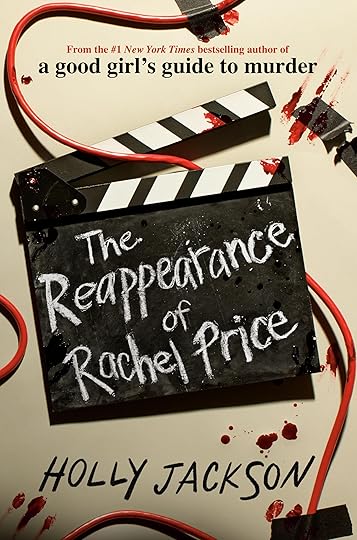
 comments
comments
As you know from the title, partway into filming, Rachel Price returns. This ought to answer all questions and be a happily ever after, right? But her family reunion is awkward to say the least. Her story doesn't quite add up. Was the timing of her return really a coincidence? Her prickly daughter Bel is suspicious and begins investigating...
This book is a ride and a half. It has something like eleven shocking twists, all of which basically make sense and create a coherent whole. At exactly the fifty percent mark, something big happens, and then it's all !!!!! from there on. This would be a very fun book to read with a friend .
Bel is a great narrator - angry, driven, sometimes mean, but very plausibly a teenager who's spent her whole life with the shadow of the mother she's never known hanging over her. There's some nice commentary on true crime.
I read this in a single gulp and look forward to reading more batshit thrillers from Jackson, who also wrote The Good Girl's Guide to Murder.
If you've read it, feel free to put spoilers in the comments. If you haven't read it, don't read the comments till you do.
Content notes: Domestic abuse, gaslighting, violence, dementia. They're treated seriously but the tone is "thriller," not "brutal realism."

 comments
comments
Published on September 25, 2024 08:20
September 24, 2024
Mini Book Reviews: Beanland, Jones, Lunn, Shaw, Swanwick, Tchaikovsky, Westerfeld
Here is a rundown of some the books I read this year which 1) were new to me rather than rereads, 2) which I managed to record (so disproportionately ebooks), 3) which I did not do full reviews of already, and have given up on all hope of doing so, but remember well enough to do very short ones. You'll see that I felt mostly meh about them. Generally I feel compelled to write a review when I love a book, hate a book, or have strongly mixed feelings about a book.
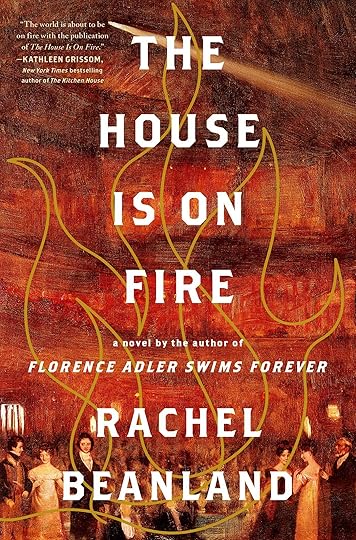
The House is on Fire, by Rachel Beanland. Historical fiction about a real theatre fire in Richmond, Virginia in 1811, in which an enslaved blacksmith saved a lot of people's lives. I meant to write it up to rage about it, didn't have time, and then couldn't remember the exact details. It's written by a white woman and you can tell she means to illuminate racism, but WAY understates the actual racism of the time - something underlined by her afterword, in which she explains how she deviates from historical facts.
Her deviations mostly make white people way nicer than they really were, like completely making up grateful white women whose lives he'd saved raising money so the heroic black man can buy his wife's freedom. The white people in the town did eventually take up a collection for him... but it was FORTY YEARS LATER, when he was destitute, way after his enslaved wife had been sold away and lost to him forever. And also, in real life, after he saved the lives of multiple white people, he still didn't get freed for another TWENTY YEARS, and that was because his bought his own freedom with money he'd saved. The whole book can be summed up with white people calling him, a SLAVE, Mr. Hunt. I don't think so!
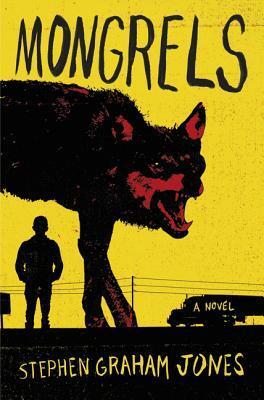
Mongrels, by Stephen Graham Jones. Odd little novel, eccentrically structured, about a family of werewolves leading a very marginal existence; being a werewolf mostly means there are about a million ways in which the modern world is liable to kill you. A lot of it reads like Jones listing every thought he's ever had about how werewolves might really work. A sharp portrait of outsiders and drifters, sometimes very funny, sometimes gross, sometimes oddly sweet. LOTS of animal harm. Any given part is engaging but it doesn't have a lot of forward momentum.
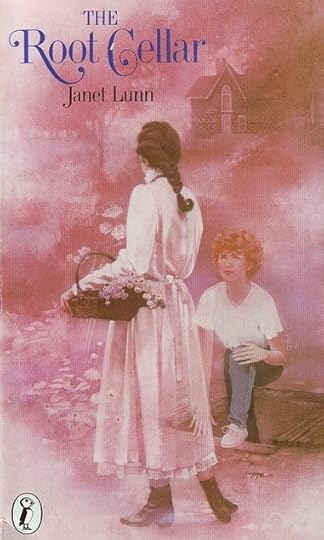
The Root Cellar, by Janet Lunn. A lonely, poorly socialized white orphan girl travels back in time to Canada during the American Civil War, and makes friends with some white Canadians who are involved in it. I learned some stuff about Canada's involvement in the American Civil War, which is a subject I had not considered before and will undoubtedly never consider again.
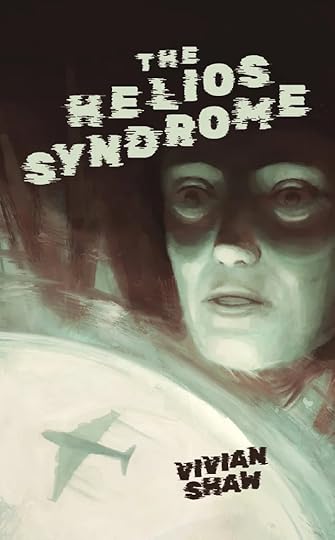
The Helios Syndrome by Vivian Shaw (the Greta von Helsing writer). A novella about a necromancer who helps with plane crash investigations and gets haunted by the ghost of a dead pilot. I was entertained while reading, but now remember almost nothing about this.
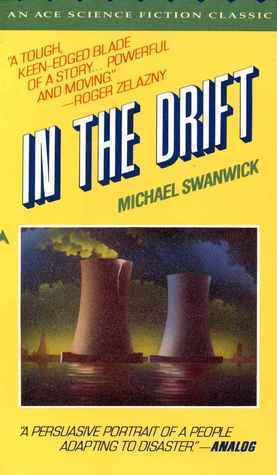
In the Drift, by Michael Swanwick. Depressing dystopia about America after a Chernobyl type nuclear accident. Swanwick's prose is gorgeous and that plus ambiguous psychic powers kept me reading, but it was a fix-up novel and felt a bit aimless. I wasn't that interested in the politicking and there was lots of it.
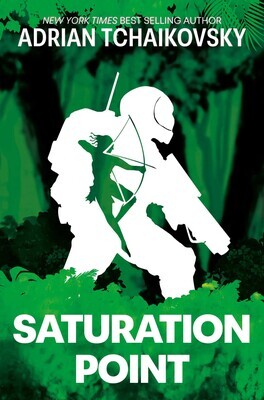
Saturation Point, by Adrian Tchaikovsky. A novella about a scientist in a depressing dystopia who gets tapped to go another expedition back to a deadly area, after the first one she was on 20 years ago ended in disaster. The area's deadliness is largely because of its wet bulb temperature. I enjoyed this while I read it but the ending felt like it belonged more on a short horror story than on the book it had been up to that point. Very little characterization. Not his best work.
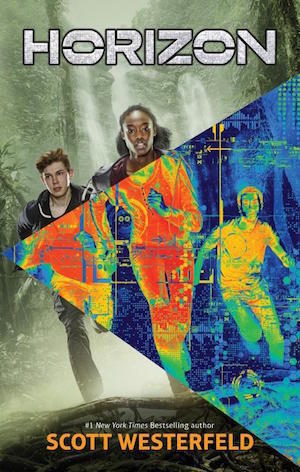
Horizon, by Scott Westerfeld. A bunch of teenagers crash-land in a very weird environment filled with weird things. This was pretty entertaining, kind of a more science fiction-y middle-grade Lost. But then I realized that the subsequent books in the series were written by other writers and no one seems to like the ending, so I stopped there.
 comments
comments

The House is on Fire, by Rachel Beanland. Historical fiction about a real theatre fire in Richmond, Virginia in 1811, in which an enslaved blacksmith saved a lot of people's lives. I meant to write it up to rage about it, didn't have time, and then couldn't remember the exact details. It's written by a white woman and you can tell she means to illuminate racism, but WAY understates the actual racism of the time - something underlined by her afterword, in which she explains how she deviates from historical facts.
Her deviations mostly make white people way nicer than they really were, like completely making up grateful white women whose lives he'd saved raising money so the heroic black man can buy his wife's freedom. The white people in the town did eventually take up a collection for him... but it was FORTY YEARS LATER, when he was destitute, way after his enslaved wife had been sold away and lost to him forever. And also, in real life, after he saved the lives of multiple white people, he still didn't get freed for another TWENTY YEARS, and that was because his bought his own freedom with money he'd saved. The whole book can be summed up with white people calling him, a SLAVE, Mr. Hunt. I don't think so!

Mongrels, by Stephen Graham Jones. Odd little novel, eccentrically structured, about a family of werewolves leading a very marginal existence; being a werewolf mostly means there are about a million ways in which the modern world is liable to kill you. A lot of it reads like Jones listing every thought he's ever had about how werewolves might really work. A sharp portrait of outsiders and drifters, sometimes very funny, sometimes gross, sometimes oddly sweet. LOTS of animal harm. Any given part is engaging but it doesn't have a lot of forward momentum.

The Root Cellar, by Janet Lunn. A lonely, poorly socialized white orphan girl travels back in time to Canada during the American Civil War, and makes friends with some white Canadians who are involved in it. I learned some stuff about Canada's involvement in the American Civil War, which is a subject I had not considered before and will undoubtedly never consider again.

The Helios Syndrome by Vivian Shaw (the Greta von Helsing writer). A novella about a necromancer who helps with plane crash investigations and gets haunted by the ghost of a dead pilot. I was entertained while reading, but now remember almost nothing about this.

In the Drift, by Michael Swanwick. Depressing dystopia about America after a Chernobyl type nuclear accident. Swanwick's prose is gorgeous and that plus ambiguous psychic powers kept me reading, but it was a fix-up novel and felt a bit aimless. I wasn't that interested in the politicking and there was lots of it.

Saturation Point, by Adrian Tchaikovsky. A novella about a scientist in a depressing dystopia who gets tapped to go another expedition back to a deadly area, after the first one she was on 20 years ago ended in disaster. The area's deadliness is largely because of its wet bulb temperature. I enjoyed this while I read it but the ending felt like it belonged more on a short horror story than on the book it had been up to that point. Very little characterization. Not his best work.

Horizon, by Scott Westerfeld. A bunch of teenagers crash-land in a very weird environment filled with weird things. This was pretty entertaining, kind of a more science fiction-y middle-grade Lost. But then I realized that the subsequent books in the series were written by other writers and no one seems to like the ending, so I stopped there.
 comments
comments
Published on September 24, 2024 12:01
Assorted Mini-Book Reviews
Here is a rundown of some the books I read this year which 1) were new to me rather than rereads, 2) which I managed to record (so disproportionately ebooks), 3) which I did not do full reviews of already, and have given up on all hope of doing so, but remember well enough to do very short ones. You'll see that I felt mostly meh about them. Generally I feel compelled to write a review when I love a book, hate a book, or have strongly mixed feelings about a book.

The House is on Fire, by Rachel Beanland. Historical fiction about a real theatre fire in Richmond, Virginia in 1811, in which an enslaved blacksmith saved a lot of people's lives. I meant to write it up to rage about it, didn't have time, and then couldn't remember the exact details. It's written by a white woman and you can tell she means to illuminate racism, but WAY understates the actual racism of the time - something underlined by her afterword, in which she explains how she deviates from historical facts.
Her deviations mostly make white people way nicer than they really were, like completely making up grateful white women whose lives he'd saved raising money so the heroic black man can buy his wife's freedom. The white people in the town did eventually take up a collection for him... but it was FORTY YEARS LATER, when he was destitute, way after his enslaved wife had been sold away and lost to him forever. And also, in real life, after he saved the lives of multiple white people, he still didn't get freed for another TWENTY YEARS, and that was because his bought his own freedom with money he'd saved. The whole book can be summed up with white people calling him, a SLAVE, Mr. Hunt. I don't think so!

Mongrels, by Stephen Graham Jones. Odd little novel, eccentrically structured, about a family of werewolves leading a very marginal existence; being a werewolf mostly means there are about a million ways in which the modern world is liable to kill you. A lot of it reads like Jones listing every thought he's ever had about how werewolves might really work. A sharp portrait of outsiders and drifters, sometimes very funny, sometimes gross, sometimes oddly sweet. LOTS of animal harm. Any given part is engaging but it doesn't have a lot of forward momentum.

The Root Cellar, by Janet Lunn. A lonely, poorly socialized white orphan girl travels back in time to Canada during the American Civil War, and makes friends with some white Canadians who are involved in it. I learned some stuff about Canada's involvement in the American Civil War, which is a subject I had not considered before and will undoubtedly never consider again.

The Helios Syndrome by Vivian Shaw (the Greta von Helsing writer). A novella about a necromancer who helps with plane crash investigations and gets haunted by the ghost of a dead pilot. I was entertained while reading, but now remember almost nothing about this.

In the Drift, by Michael Swanwick. Depressing dystopia about America after a Chernobyl type nuclear accident. Swanwick's prose is gorgeous and that plus ambiguous psychic powers kept me reading, but it was a fix-up novel and felt a bit aimless. I wasn't that interested in the politicking and there was lots of it.

Saturation Point, by Adrian Tchaikovsky. A novella about a scientist in a depressing dystopia who gets tapped to go another expedition back to a deadly area, after the first one she was on 20 years ago ended in disaster. The area's deadliness is largely because of its wet bulb temperature. I enjoyed this while I read it but the ending felt like it belonged more on a short horror story than on the book it had been up to that point. Very little characterization. Not his best work.

Horizon, by Scott Westerfeld. A bunch of teenagers crash-land in a very weird environment filled with weird things. This was pretty entertaining, kind of a more science fiction-y middle-grade Lost. But then I realized that the subsequent books in the series were written by other writers and no one seems to like the ending, so I stopped there.
 comments
comments

The House is on Fire, by Rachel Beanland. Historical fiction about a real theatre fire in Richmond, Virginia in 1811, in which an enslaved blacksmith saved a lot of people's lives. I meant to write it up to rage about it, didn't have time, and then couldn't remember the exact details. It's written by a white woman and you can tell she means to illuminate racism, but WAY understates the actual racism of the time - something underlined by her afterword, in which she explains how she deviates from historical facts.
Her deviations mostly make white people way nicer than they really were, like completely making up grateful white women whose lives he'd saved raising money so the heroic black man can buy his wife's freedom. The white people in the town did eventually take up a collection for him... but it was FORTY YEARS LATER, when he was destitute, way after his enslaved wife had been sold away and lost to him forever. And also, in real life, after he saved the lives of multiple white people, he still didn't get freed for another TWENTY YEARS, and that was because his bought his own freedom with money he'd saved. The whole book can be summed up with white people calling him, a SLAVE, Mr. Hunt. I don't think so!

Mongrels, by Stephen Graham Jones. Odd little novel, eccentrically structured, about a family of werewolves leading a very marginal existence; being a werewolf mostly means there are about a million ways in which the modern world is liable to kill you. A lot of it reads like Jones listing every thought he's ever had about how werewolves might really work. A sharp portrait of outsiders and drifters, sometimes very funny, sometimes gross, sometimes oddly sweet. LOTS of animal harm. Any given part is engaging but it doesn't have a lot of forward momentum.

The Root Cellar, by Janet Lunn. A lonely, poorly socialized white orphan girl travels back in time to Canada during the American Civil War, and makes friends with some white Canadians who are involved in it. I learned some stuff about Canada's involvement in the American Civil War, which is a subject I had not considered before and will undoubtedly never consider again.

The Helios Syndrome by Vivian Shaw (the Greta von Helsing writer). A novella about a necromancer who helps with plane crash investigations and gets haunted by the ghost of a dead pilot. I was entertained while reading, but now remember almost nothing about this.

In the Drift, by Michael Swanwick. Depressing dystopia about America after a Chernobyl type nuclear accident. Swanwick's prose is gorgeous and that plus ambiguous psychic powers kept me reading, but it was a fix-up novel and felt a bit aimless. I wasn't that interested in the politicking and there was lots of it.

Saturation Point, by Adrian Tchaikovsky. A novella about a scientist in a depressing dystopia who gets tapped to go another expedition back to a deadly area, after the first one she was on 20 years ago ended in disaster. The area's deadliness is largely because of its wet bulb temperature. I enjoyed this while I read it but the ending felt like it belonged more on a short horror story than on the book it had been up to that point. Very little characterization. Not his best work.

Horizon, by Scott Westerfeld. A bunch of teenagers crash-land in a very weird environment filled with weird things. This was pretty entertaining, kind of a more science fiction-y middle-grade Lost. But then I realized that the subsequent books in the series were written by other writers and no one seems to like the ending, so I stopped there.
 comments
comments
Published on September 24, 2024 12:01
September 23, 2024
Children of the Night, by John Blackburn
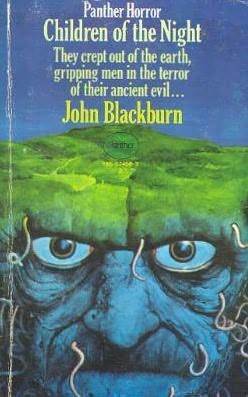
The little English village of Dunstonholme has been the site of many strange tragedies, starting when a group of religious fanatics called the Children of Paul were involved in a massacre in 1300. It's now 1966, and the weird shit continues.
After a ship vanishes mysteriously, strange things start happening, and happening, and happening. Sheep go mad. Bulls go mad. People go mad. Something weird seems to be going on underground, and the bishop (who is either a mass murdering criminal smuggled into the role or a naive hippie, Blackburn seems to have forgotten to pick one) should probably not arrange a celebratory meeting for whatever lurks beneath the sod...
This book, while definitely a fun read, was a bit too similar to For Fear of Little Men to be a good one to read right after it, especially as the latter has more interesting/likable characters and a higher batshit quotient. I am not sure whether to add or subtract points for the reveal of the horror, which unlike many such reveals is not anticlimatic but worse than what I was imagining, but is also extremely gross and a particular brand of gross which I particularly dislike. I mean, effective, but YUCK.
However, the second chapter of Children of the Night is a deranged treat for horror fans and the high point of the book, so I recommend going to Amazon and reading it in the "read a sample." It's like a lost scene from a British version of Needful Things.
Spoilers! ( Read more... )
 comments
comments
Published on September 23, 2024 10:44
September 21, 2024
For posterity
I spent the last month frantically proofreading Traitor, the final book of the Change series, which is coming out October 14.
That plus a delightful recent Zoe Chant book by an Australian Zoe which involved a certain adorable Australian creature, combined in my mind last night. I dreamed that Sherwood had returned Traitor to me after the proofread, explaining that she'd made a few minor changes. I was dismayed to find that she'd added a whole lot of very obscure vocabulary, plus some strange worldbuilding choices.
"But Sherwood," I protested, "Teenagers read these books! They won't know these words. And also, the animals are supposed to be ones you'd find in California!"
Here is the only passage I remembered when I woke up:
He walked out into the hot summer sunshine. A quokka dreeds its weird.
 comments
comments
That plus a delightful recent Zoe Chant book by an Australian Zoe which involved a certain adorable Australian creature, combined in my mind last night. I dreamed that Sherwood had returned Traitor to me after the proofread, explaining that she'd made a few minor changes. I was dismayed to find that she'd added a whole lot of very obscure vocabulary, plus some strange worldbuilding choices.
"But Sherwood," I protested, "Teenagers read these books! They won't know these words. And also, the animals are supposed to be ones you'd find in California!"
Here is the only passage I remembered when I woke up:
He walked out into the hot summer sunshine. A quokka dreeds its weird.
 comments
comments
Published on September 21, 2024 02:46
September 20, 2024
For Fear of Little Men, by John Blackburn
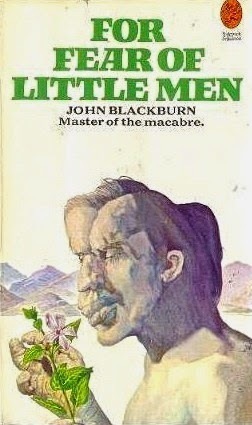
Down the airy mountain
Up the rushy glen
We daren't go a-hunting
For fear of little men.
The plot of this book is hard to describe, period, and even harder when trying to avoid spoilers. But basically, Sir Marcus Levin (Jewish; concentration camp survivor; Nobel prize winner in medicine) and his wife Lady Tania Levin (Russian; former bodyguard, yes really) move to a little cabin in Wales formerly occupied by a mysteriously tortured to death judge with an obsession about local folklore, while Marcus is investigating shellfish poisoning and Lady Levin is recovering from a miscarriage caused by a mysterious car accident; while they're there, they additionally get involved in a mysterious case involving airplanes and strange noises. Also there are Nazis. This sounds like I've given away everything, but trust me, I haven't even come close.
I am pleased to report that this book by John Blackburn is exactly as batshit as A Scent of New-Mown Hay, if less spooky and somewhat less startling given that I already read one book by him and so was somewhat prepared for the otherwise unexpected Nazis. (As villains, I hasten to add.)
Blackburn reminds me a bit of Tim Powers, not in style or tone but in the construction of novels by assembling wildly disparate elements and then fitting together like puzzle pieces to create a unified plot. A Scent of New-Mown Hay felt like horror and this feels like a thriller, but both are clearly coming from the same sensibility. Marcus and Tania, with their impressive and unlikely backgrounds, feel like recurring characters. I was unsurprised to see that they turn up in at least one other book.
Regarding Marcus's Jewishness, there's some of-the-period language and mild stereotyping, but he's the protagonist and quite likable, which is not how you expect to find a Jewish character in a book of this period by a non-Jewish author. Tania, likewise, is active and heroic. There is a character who's developmentally disabled or something and is not the greatest portrayal, but overall this book would be about five thousand times more offensive if written by say Agatha Christie.
I quite enjoyed this and look forward to reading more by Blackburn. Like many of his books, it has been reprinted and is available in ebook and paper form.
 comments
comments
Published on September 20, 2024 13:43
September 15, 2024
Waywarden (Briardark # 2), by S. A. Harian
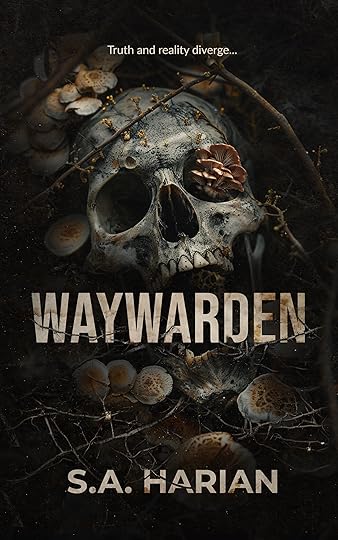
The sequel to Briardark goes a long way toward reassuring me that Harian has a plan and it will all, or mostly all, make sense in the end. It's got everything I enjoyed about the first book but the epistolatory aspect: weird biology, weird time, lost in the wilderness, spooky cults, strange games, survival horror, and people trying to help each other across extreme gaps of space and time. But it's generally better-written and definitely better-characterized, and answers an unexpected number of questions while still leaving lots of mystery to explore.
It ends not exactly on a cliffhanger, but definitely on a big "to be continued." But I now feel confident that it will be continued and I will enjoy the continuation.
BIG SPOILERS.
( Read more... )
 comments
comments
Published on September 15, 2024 13:33



